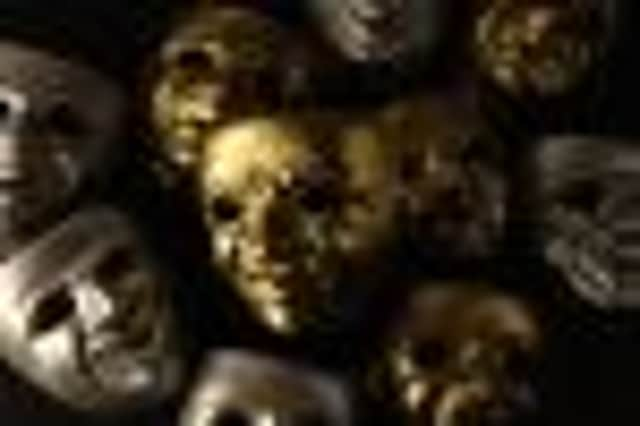Allan Massie: Break from Union unlikely to help the arts


Culture, however, may be national, provincial, local, and a rich and lively culture may be the fruit of political arrangements. This is not a simple matter. It is arguable that the culture of the Habsburg Austro-Hungarian Empire was richer than that of the nation states which succeeded it.
Nevertheless, the rise of national feeling may stimulate culture, though the reverse may also be the case, perhaps more often. It is arguable that Scottish nationalism over the last hundred years has been more cultural than political. Indeed, for most of that time political nationalism has been muted. The rise of the Scottish National Party has been quite recent. Yet even during the decades when only a tiny minority of Scots thought political independence desirable or achievable, Scottish cultural nationalism flourished. It has always been quite possible to be a political unionist and a cultural nationalist.
Advertisement
Hide AdAdvertisement
Hide AdWhat, then, is meant by this Scottish cultural nationalism which has not always gone with a demand for political independence? It is rooted in the conviction that we are distinct, not submerged in Britishness. Of course we are part of a British culture too – and the form of that culture has itself been greatly influenced by Scots – just as we are also part of a European culture and a culture of the English-speaking peoples. Over the last 300 years Scots have recognized that there was a danger that everything recognisably Scots might be swallowed up and disappear simply because we live cheek by jowl alongside a dominant English culture. If the great British cultural institution of the last century has been the BBC, which is sometimes regarded as an instrument of English domination, we should remember that the director-general who established the BBC’s ethos was John Reith, craggy Presbyterian son of the manse.
Suppose we vote for independence next year. How would this affect our culture? In one way, it might make little difference. The instruments of the state which promote, finance and, to some extent, manage culture are almost all devolved, and under the control of the Scottish Parliament and Government. The exception is the BBC, publicly-financed by way of the licence fee and operating independently of the government of the day; BBC Scotland has only a very limited autonomy. We would expect that an independent Scotland would establish its own national broadcaster. It is not clear what form this would take, or how it would be financed, but it seems certain that there would be such a body.
Would an independent Scotland spend more on cultural activities than is spent in Scotland today? Would there be more money for our national institutions – galleries, museums, orchestras, theatre companies – and more for regional or local arts organisations? There might be, but there is no guarantee that there would be. The politicians might quite reasonably decide that in difficult economic times, such as are likely to continue whether we vote for independence or not, the pressure on public finances would not permit higher spending on culture. All the available evidence suggests that only a minority of Scots go to theatres, concerts (other than rock and pop ones), visit galleries and buy books. We may have lots of poets and novelists, many of them good, but, despite the efforts of a few brave individuals, the Scottish publishing industry is a pale shadow of what it was in the 19th century.
Would independence stimulate the artists, the producers of culture? It might do so if they were enthused by the idea that, to quote Alasdair Gray, they believed they were “living in the first days of a better country”. Yet such enthusiasm would probably be short-lived. The novelty would wear off. They might feel, as many do now, that they were valued by their peers and regarded with indifference by the mass of the public. The prospect of independence might prove to have been more stimulating than the reality.
That was what happened in Ireland. The Irish Cultural Renaissance flowered in the quarter-century before the establishment of the Irish Free State. When it became a reality many artists found the atmosphere unsympathetic. Some – Samuel Beckett and Sean O’Casey being conspicuous examples – followed the example of James Joyce and chose to live out of Ireland. It is true of course that an independent Scotland would not be a narrow-minded clerical republic like De Valera’s Ireland, and there wouldn’t – surely – be anything like the censorship that, as late as the 1960s, oppressed good novelists such as John McGahern, John Broderick and Edna O’Brien, but there is no persuasive reason to believe that artists would find a more responsive public in an independent Scotland than they do now. The truth is that the public appetite for the arts is limited and it is hard to see why this would change.
Scottish culture is often said to be in a healthy state, and in some ways it is. Nonetheless, except in the field of popular music, it is public money which enables the performing arts to survive, and, with a very few exceptions, any individual artist who relies on the sales of his or her work within Scotland is almost certain to be poor. It seems unlikely that independence would change this, just as it seems unlikely that it would lead to higher public spending on culture.
Some of what are now fringe-art forms in Scotland such as film might do better, but it would be foolish to look for higher levels of public spending than we have enjoyed in the years of devolution. After all, in cultural matters, with the exception of broadcasting, the Scottish Government already has full autonomy, and can spend what it chooses. Would independence repair the damaged public library service or lead to more money for theatre or orchestras? It seems improbable.